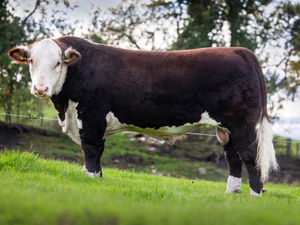Washout weather cost farms £1.3bn
Britain's washout year cost farmers a staggering £1.3billion, industry leaders said today.
England's wettest ever 12 months saw crops rot in fields, farmers unable to get on to their land and livestock struggling to cope with conditions.
Industry leaders warned the Government must do more to support farmers in extreme weather if Common Agricultural Policy subsidies are removed.
NFU president Peter Kendall made the call at the Oxford Farming Conference just a day after Environment Secretary and North Shropshire MP Owen Paterson acknowledged the difficulties farmers had faced in 2012.
Mr Kendall said the extreme weather had left a £1.3 billion 'black hole' in the farming economy and said that action needed to be taken to ensure farmers continue to be protected against such conditions.
"The Government repeatedly talk about the support farmers get being a waste of money, while every other country in Europe makes a case for why farmers are supported.
"Years like 2012 prove why giving low levels of support is really valuable for keeping them in business when you have volatile markets and extreme weather.
"There's a big debate coming for when government tries to push us not to have the Common Agricultural Policy support we currently have."
Despite a 176 per cent rise in the price of potatoes, Mr Kendall said farmers were not benefiting from the increase because they had already signed fixed-price contracts with retailers.
"A lot of potatoes were sold on contract beforehand and a very small percentage are on the free market now," he said. "And it's only surplus potatoes that make those big sums of money.
"You have food security by having open markets. You want domestic resilience. People are borrowing from banks to pay bills rather than make their businesses more resilient for the long-term."
He also praised Mr Paterson's stance on GM crops.
Mr Kendall said: We need to show that the UK is open minded, we want to do the research in this. It will be tragic if we don't open ourselves up to solutions in a food-insecure world."





